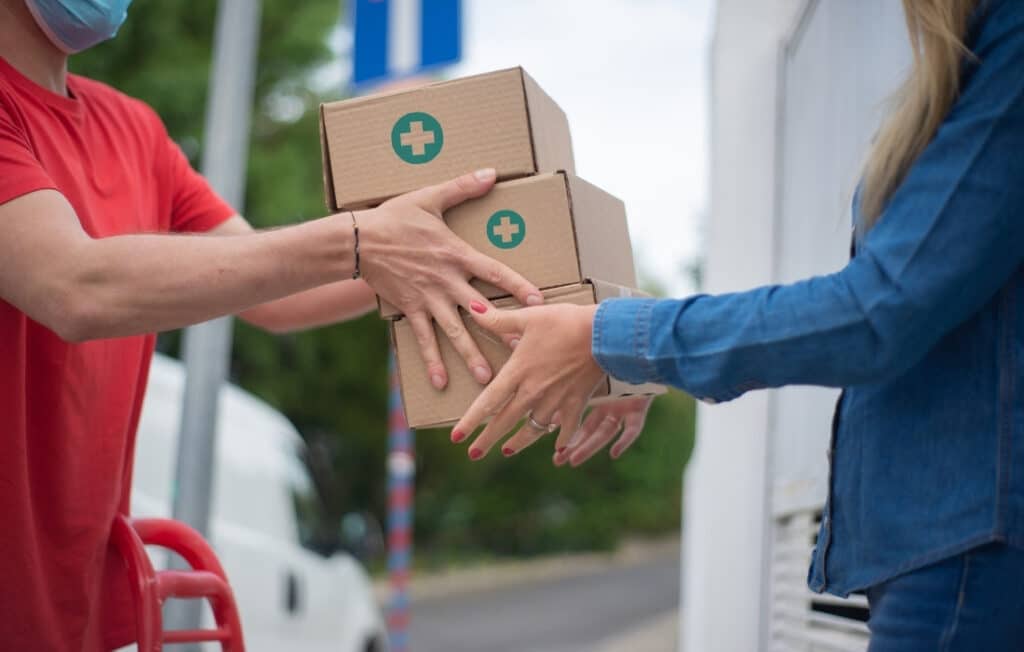To ensure the safe and compliant transportation of sensitive materials, it is crucial to understand the regulations for Radioactive Drug Courier in San Mateo. This guide will clarify the key legal requirements and safety protocols that need to be followed.
What are Radioactive Drug Couriers?
Radioactive Drug Couriers are experts in transporting radioactive pharmaceuticals, which are crucial for medical treatments and diagnostics. They have experienced extensive training to handle, store, and transport these materials in full compliance with strict regulatory guidelines. This ensures not only the safety of the shipments but also adherence to all necessary regulations. Here are some key features that make Radioactive Drug Couriers stand out:
- Specialized Training: Rigorous training in handling and transporting radioactive substances.
- Regulatory Compliance: Adherence to federal and state regulations governing the transport of radioactive materials.
- Safety Measures: Equipped with specialized containers and safety gear to minimize radiation exposure.
- Real-Time Tracking: Advanced tracking systems to monitor the shipment at all times.
- Emergency Protocols: Preparedness for any contingencies, including spills or accidental exposure.
- License and Certification: Required permits and certifications to operate legally.
- Secure Storage: Facilities designed to safely store radioactive drugs before and after transit.
- Time-Sensitive: Capable of quick deliveries to meet the short half-life of some radioactive drugs.
- Documentation: Complete and accurate record-keeping for every shipment.
Licensing and Permitting
In San Mateo, couriers transporting radioactive drugs must obtain the proper licenses and permits to ensure safety. The California Department of Public Health (CDPH) oversees the transportation of radioactive materials, including these drugs. Couriers are required to acquire a Radioactive Materials License from CDPH, which outlines the specific regulations and conditions for transporting these substances securely.
| Requirement | Description |
| Radioactive Materials License | Couriers must obtain a license from the CDPH, outlining the requirements for transporting radioactive drugs. |
| Transportation Permit | In addition to the license, couriers must also obtain a transportation permit from the CDPH. This permit ensures compliance with specific transportation regulations. |
Packaging and Labeling

To ensure safe transportation, it is essential to properly package and label radioactive drugs. The CDPH has established guidelines that couriers must follow to handle and identify these substances safely.
| Guideline | Description |
| Shielding | Radioactive drugs must be packaged in containers that provide adequate shielding to minimize radiation exposure. |
| Labeling | Containers must be clearly labeled with appropriate radioactive symbols, warning signs, and information about the contents. |
| Documentation | Couriers must maintain accurate documentation of the radioactive drugs being transported, including information about the source, quantity, and activity of the substances. |
Training and Safety Protocols

To safely transport radioactive drugs, couriers in San Mateo must complete specialized training and adhere to stringent safety protocols. This training provides couriers with the essential knowledge and skills needed to handle radioactive substances securely.
| Requirement | Description |
| Radiation Safety Training | Couriers must undergo radiation safety training to understand the potential hazards of radioactive drugs and learn how to handle them safely. |
| Emergency Response Procedures | Couriers must be trained in emergency response procedures to effectively handle any unforeseen incidents or accidents during transportation. |
| Personal Protective Equipment (PPE) | Couriers must wear appropriate PPE, such as gloves, lab coats, and goggles, to protect themselves from potential radiation exposure. |
Inspections and Compliance
To adhere to regulatory protocols, couriers who transport radioactive drugs in San Mateo undergo inspections conducted by the CDPH. These inspections are put in place to ensure couriers strictly adhere to all necessary regulations and guidelines about the safe transportation of radioactive substances.
| Inspection Process | Description |
| Routine Inspections | The CDPH conducts routine inspections to verify compliance with licensing requirements, packaging and labeling guidelines, and safety protocols. |
| Record Keeping | Couriers must maintain accurate records of their transportation activities, including documentation of inspections and any corrective actions taken. |
| Enforcement Actions | In cases of non-compliance, the CDPH may take enforcement actions, such as issuing fines or suspending licenses, to ensure adherence to regulations. |
Can anyone become a radioactive drug courier in San Mateo?

Becoming a radioactive drug courier in San Mateo is not open to just anyone. There are specific requirements and regulations that govern this role, prioritizing safety and security. To qualify as a radioactive drug courier, individuals must meet specific criteria, including:
- Possessing the necessary qualifications and training in handling radioactive materials.
- Obtaining the appropriate licenses and certifications from regulatory bodies.
- Undergoing background checks and security clearances to ensure trustworthiness and reliability.
In addition, individuals who transport radioactive drugs must follow strict protocols and guidelines. These regulations aim to safeguard public health and safety while also preventing any unauthorized access or improper use of radioactive materials.
To ensure full compliance with regulations, couriers transporting radioactive drugs must adhere to specific procedures. These processes may include:
| Procedure | Description |
| Packaging | Radioactive drugs must be securely packaged in approved containers to prevent leakage or damage during transportation. |
| Labeling | Proper labeling of packages is essential to indicate the presence of radioactive materials and provide necessary information for handling and emergency response. |
| Transport Vehicles | Vehicles used for transporting radioactive drugs must meet specific safety standards and be equipped with appropriate safety features, such as radiation detection devices. |
| Route Planning | Couriers must plan their routes carefully, considering factors such as traffic, potential hazards, and proximity to populated areas, to minimize the risk of accidents or incidents. |
| Emergency Preparedness | Couriers must be trained in emergency response procedures and carry necessary safety equipment, such as personal protective gear and radiation monitoring devices, to handle unforeseen situations. |
Transporting radioactive drugs in San Mateo involves strict regulations and guidelines. These rules cover licensing, permits, packaging, labeling, training, safety protocols, inspections, and compliance measures. Following these regulations is crucial for couriers as they play a critical role in safeguarding public health and safety while transporting these potentially dangerous materials.
In San Mateo, radioactive drug couriers are subject to regulations from the FDA, DOT, and NRC. These regulations cover licensing, training, packaging, and transportation requirements. Experience the fastest and most reliable courier service with Aceso Courier. Contact the owner to Book a consultation now and enjoy peace of mind knowing your package will arrive on time, every time. Don’t settle for anything less than excellence – choose Aceso Courier today!
FAQs
What federal regulations apply to Radioactive Drug Couriers in San Mateo?
Federal regulations, such as those set by the U.S. Department of Transportation (DOT) and Nuclear Regulatory Commission (NRC), are applicable.
Are there specific state regulations for San Mateo?
Indeed, California has additional regulations that work alongside the federal rules. These state regulations are overseen by the California Department of Public Health.
What licenses are required?
Couriers must hold both federal and state licenses to operate legally.
How are safety measures enforced?
Regular inspections and audits are conducted to ensure compliance with safety protocols.
What penalties exist for non-compliance?
Penalties can range from fines to license revocation, depending on the severity of the violation.









